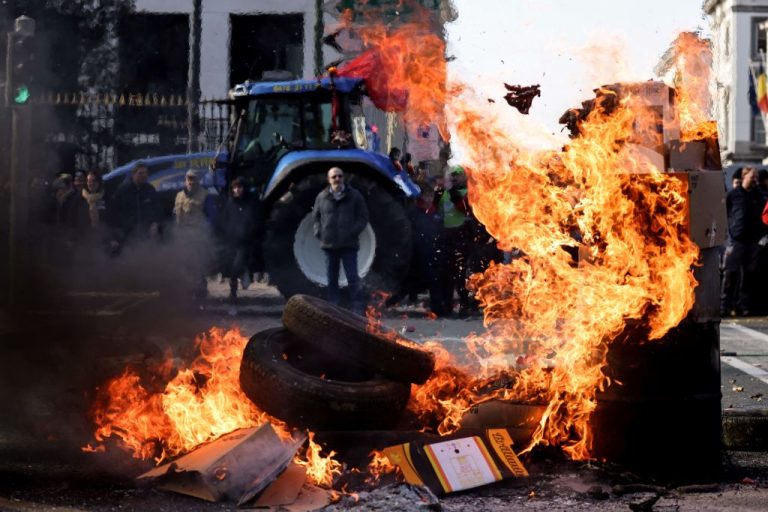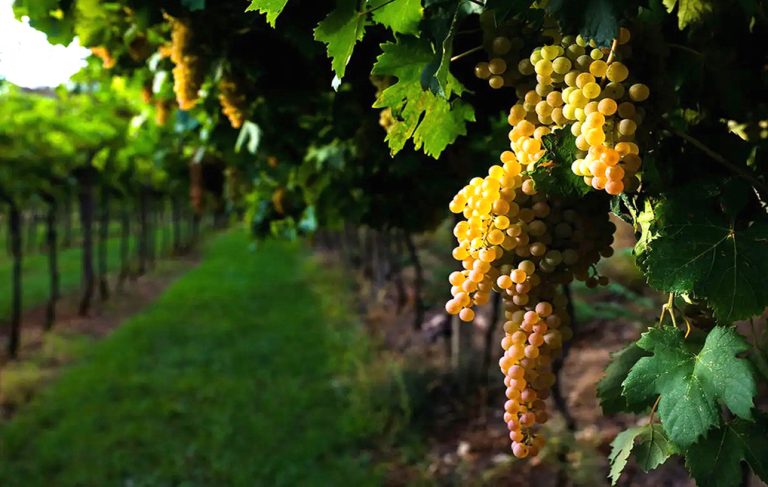Thousands of Belgian farmers drove up to Brussels to protest plans to curb nitrogen emissions which will probably be in vain because the regional government is just following European directives.
Police estimated the number of tractors clogging the streets of Brussels at 2,700, but according to social media, the pageant to Brussels reached over 30 km (18.6 miles). Many participants from other EU countries were also present in support of the protestors.
In neighboring the Netherlands, where the nitrogen policies were first introduced last summer, farmers rebelled against the government plans to limit nitrogen emissions, as they would effectively kill their businesses and significantly reduce livestock in the country. However, their protests have been to no avail.
The Dutch-speaking Flanders part of Belgium is destined to become part of a future Tri-State City according to the UN’s sustainable development goals as laid out in their notorious Agenda 2030.
According to the plans, the new metropolis will comprise large swaths of Belgium, the Netherlands, and the German state of Nordrein Westfalen. It will house more than 30 million people, mainly refugees. There will be, however, no place for self-supporting agricultural undertakers.
True liberators
Success
You are now signed up for our newsletter
Success
Check your email to complete sign up
The arrival of thousands of tractor drivers was hailed by many netizens as if they were true liberators.
“Massive protest today of the Belgian farmers at the EU parliament in Brussels, which wants to destroy European agriculture under the false excuse of nitrogen pollution. March 11th, the Dutch farmers will stand up as well! “one Twitter user cheered.
“Belgian Farmers, Rise Up!” said another one. “Belgian farmers came out at force yesterday at the EU parliament in Brussels to protest against the attack on farming and their way of life. #NoFarmersNoFood“
“The government, they want to vote laws that are not equal for industry and the farming sector,” said an unspecified Belgian farmer, according to Reuters. “And that’s a danger for us farmers because maybe we can’t continue our farms with these new laws,” the man added.
In a joint statement, agricultural organizations said that the nitrogen accord “would inflict a socio-economic carnage” in its current form. They desired that the deal would more accurately reflect the sector’s wishes and present a more realistic and workable plan.
“We are all convinced that something has to change nitrogen-wise, but the agricultural sector should not be treated differently to the industrial sector,” protester Leen Engelen said, referring to one of the many contested topics in the proposed bill.
“Our sector is already making a lot of effort and is willing to do so as well, but (the government) expects more and more from us while the industry sector is also expanding,” a goat farmer named Liesje Van Loon said.
The axe will have to fall
Politicians say that large numbers of livestock and heavy use of fertilizers, as well as traffic and construction, have led to undesirable levels of nitrogen oxides in the air and water in both Belgium and the Netherlands. They claim those are above limits, higher than EU regulations, and detrimental to the environment.
READ MORE:
- Summer Heats Up as Furious Dutch Farmers Rage Against Nitrogen Reduction Plans
- Dutch MP Argues Nitrogen Cuts Part of Globalist Agenda to Disown Farmers and House Immigrants
- Carbon Tax to Cost Canadian Farmers Upwards of $100,000 Annually
- European Union Seeks to Secure World’s First Carbon Border Tariff
- Netherlands to Confiscate 3,000 Farms Under Guise of Saving the Environment
However, the veracity of those claims has been scientifically disputed. It so has the efficacy of those planned measures and their effect on the economic and psychological health of thousands, if not millions, of people.
The planned move to limit emissions in Flanders has caused a crisis within the Flemish regional government that was not resolved during 16 hours of talks earlier this week.
In an apparent attempt to bury the lead, Belgian media reported Flemish Minister-President Jan Jambon said he wanted to make the final decisions by this weekend. Still, everyone knows already the axe will inevitably fall on the necks of thousands of Belgian farmers.
Reuters contributed to this article

















